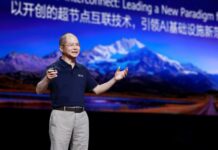Generative language AI refers to artificial intelligence systems that can produce natural language text that is similar to what a human might write. These systems are typically based on deep learning neural networks and use large datasets of text to learn the patterns and structures of language. One of the most popular approaches to generative language AI is the use of language models, such as the GPT series of models developed by OpenAI. These models are trained on massive amounts of text data, allowing them to generate high-quality text that is often indistinguishable from human writing.

Lee Kai-fu, a renowned Chinese venture capitalist and former president of Google China, has announced the launch of a new artificial intelligence (AI) company called Project AI 2.0. Unlike other similar ventures, Lee aims to establish a global tech firm that focuses on building AI 2.0 platforms and productivity applications. In his recent announcement on WeChat, Lee highlighted that the company is not just a Chinese version of ChatGPT and will offer more than high-performance chatting tools, AI-generated graphics, and texts. Lee’s goal is to redefine how users access and interact with interfaces through AI 2.0, which he believes will be the most significant enabling technology to boost social productivity in the 21st century.
Lee has secured funding and computing power for Project AI 2.0 and plans to attract top talent from around the world. With the breakthrough in deep learning, Lee predicts that AI has moved from version 1.0 to 2.0, leading to a platform-based transformation. The announcement comes after a string of Chinese big tech companies, including Baidu, Alibaba, and Tencent, have rushed to announce AI products similar to ChatGPT. Despite the competition, Lee is confident that Project AI 2.0 will stand out due to its focus on global reach and productivity applications.
RELATED:
- South Park’s Latest Episode was Co-Written Using ChatGPT
- ChatGPT Crashed for an Hour – Even Premium Users Affected
- Best Ergonomic Mouse 2023: Logitech, Microsoft & More
(Via)








Comments